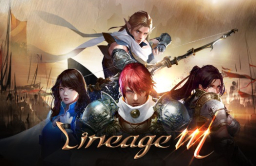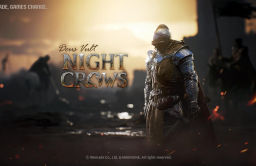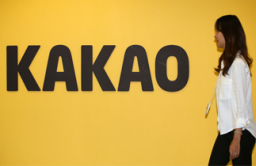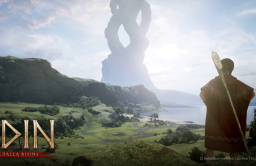-
KOSPI 2577.27 -2.21 -0.09%
-
KOSDAQ 722.52 -7.07 -0.97%
-
KOSPI200 341.49 +0.02 +0.01%
-
USD/KRW 1396 -2.00 0.14%
S.Korea’s popular MMORPGs go abroad for profitability
Korean games
S.Korea’s popular MMORPGs go abroad for profitability
Nexon releases Hit2 in Taiwan, Hong Kong, Macau; Kakao plans Odin’s Japan launch; WeMade will introduce Night Crows overseas
By
May 24, 2023 (Gmt+09:00)
3
Min read
News+
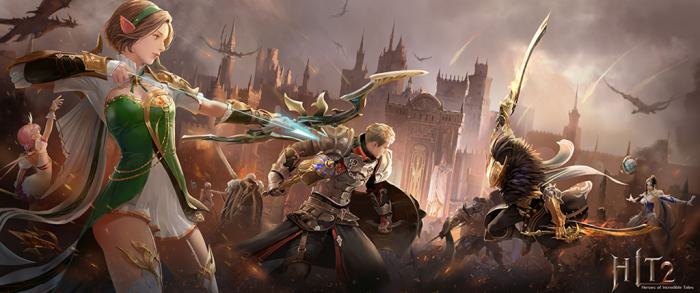
South Korean game developers target overseas markets for their locally hit massively multiplayer online role-playing games (MMORPGs) to increase profitability as the domestic industry has been saturated for the genre.
Nexon Co., a South Korean-Japanese game publisher listed on the Tokyo Stock Exchange, on Tuesday launched Hit2, a mobile MMORPG developed by its subsidiary Nexon Games Co., in Taiwan, Hong Kong and Macau.
Hit2, which utilized the intellectual property of the original popular mobile RPG Hit, bolstered the size of the game by featuring large-scale siege assaults and field battles. The game also supports cross-play of mobile and PC platforms.
The MMORPG initially released in South Korea in August 2022 maintained high rankings in sales at Google Play and App Store in the country after topping the lists earlier.
Game players in the overseas markets of Hit2 showed great interest in the game, with a pre-release promotion event there closing 10 days earlier than scheduled due to its popularity.
ODIN, NIGHT CROWS
Kakao Games Corp. plans to launch Odin: Valhalla Rising, a box office hit MMORPG in the country, on June 15 in Japan. The gaming unit of South Korean mobile platform giant Kakao Corp. is actively marketing the blockbuster game through pre-experience zones in major cities such as Tokyo, Osaka, Sapporo and Fukuoka.
Odin topped the two largest app markets in South Korea in June 2021 when it was introduced at home, raising Kakao Games sales to more than 1 trillion won ($758.4 million) in the year. The game was released in March 2022 in Taiwan, where it has been a success.
WeMade Co. also aims to showcase its latest MMORPG Night Crows, which was released last month at home, in overseas markets this year.
“We will unveil a global version with P2E functions later this year,” said a company official. Play-to-earn games enable players to make money while they are playing games.
SATURATED KOREAN MMORPG MARKET
The moves came as the South Korean MMORPG market is becoming saturated amid cut-throat competition.
NCSOFT Corp., the country’s leading game developer, introduced the genre in the local market with the launch of a mobile MMORPG Lineage M in 2017. The company also succeeded in all of its sequels including Lineage 2M and Lineage W.
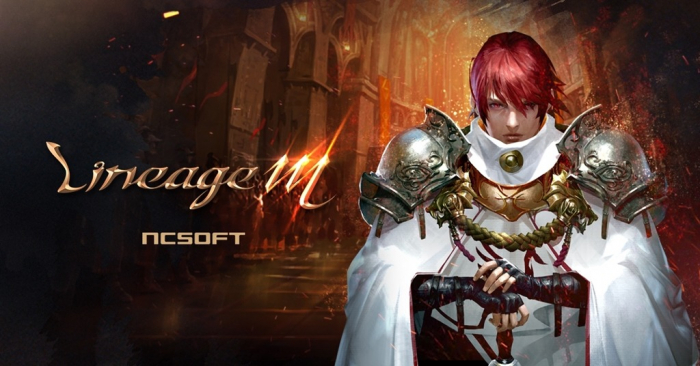
The domestic MMORPG sector has accelerated in its growth since Kakao Games released Odin in 2021, which was successful enough to threaten NCSOFT’s Lineage series. Other game developers rushed to launch the genre.
Game makers enjoyed making money from MMORPGs, which require players in groups, so-called guilds, to buy items to upgrade their capabilities to compete against users in other groups, industry sources said.
“Competitive guilds can control the ground with better items (in games),” said an MMORPG player in Seoul. “Users need to keep spending money as their guilds will lag even further once they lose competitiveness.”
The industry, however, is getting harder to maintain the profit momentum as the market became crowded with too many popular games at the same time, the sources said.
“The limited number of players is scattered to various games in Korea,” said one of the sources. “It is hard to increase sales unless they expand markets into other areas including Greater China and Japan.”
Write to Seung-Woo Lee at leeswoo@hankyung.com
Jongwoo Cheon edited this article.
More To Read
-
May 09, 2023 (Gmt+09:00)
-
Apr 28, 2023 (Gmt+09:00)
-
Nov 04, 2021 (Gmt+09:00)
-
Oct 27, 2021 (Gmt+09:00)


